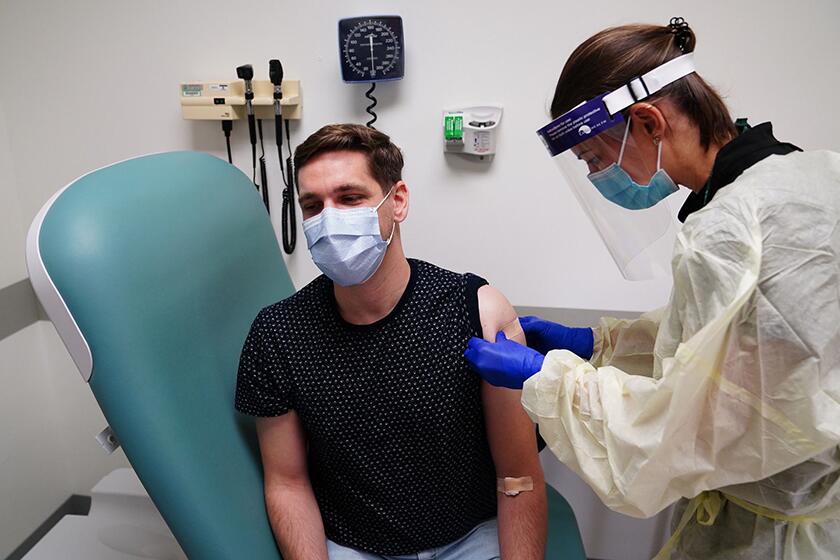Readers React: How an innocent person can end up on death row
- Share via
To the editor: George Skelton is correct that California’s death penalty system results in the state “senselessly pouring money down a rathole.” However, his defense of the merits of capital punishment is misleading. (“Scrap California’s dysfunctional death penalty policy,” Column, July 26)
He writes that accused murderers, “once proved guilty beyond a shadow of a doubt,” should be killed quickly. No courtroom in California ever requires the government to prove a defendant’s guilt “beyond a shadow of a doubt.” Jurors are explicitly instructed by the judge that, according to the law, “the evidence need not eliminate all possible doubt.”
Skelton’s reckless rhetoric helps to perpetuate a dangerous public misperception about the standard of proof in criminal trials and the frequency of wrongful convictions. According to the National Registry of Exonerations, more than 2,000 people have been freed from prison between 1989 and 2012 after they were found to have been wrongfully convicted; a man on death row became the 300th wrongfully convicted prisoner freed by DNA testing.
Our criminal justice system, as good as it may be, is inherently fallible. And once death is imposed, the error cannot be corrected.
Ken Morrison, Tustin
The writer is an Orange County public defender; his opinions are his own.
..
To the editor: As a criminal defense attorney with four capital cases, I agree with Skelton that the death penalty system is broken. Here’s a radical idea: Fix it.
Skelton is right that Gov. Jerry Brown and Atty. Gen. Kamala Harris, both lifelong death penalty foes, will do nothing to fix the system. It is unethical for them not to zealously enforce the law just because they don’t like it. Unable to win at the ballot box, the opponents win by obstruction and refusing to do the job they are obligated to do.
Someday a governor may be in office who does not like certain environmental protections or civil rights statutes. If that happens, I hope it is remembered where the precedent arose that the executive need not do the public’s bidding.
David Goodwin, Los Angeles
More to Read
A cure for the common opinion
Get thought-provoking perspectives with our weekly newsletter.
You may occasionally receive promotional content from the Los Angeles Times.









